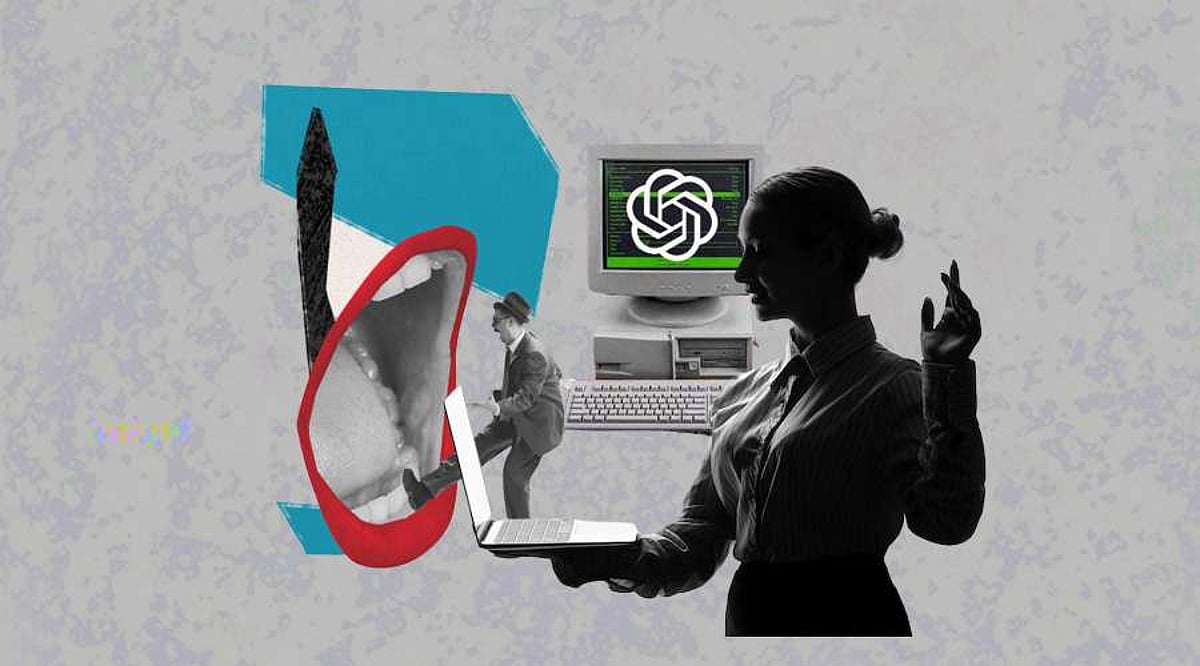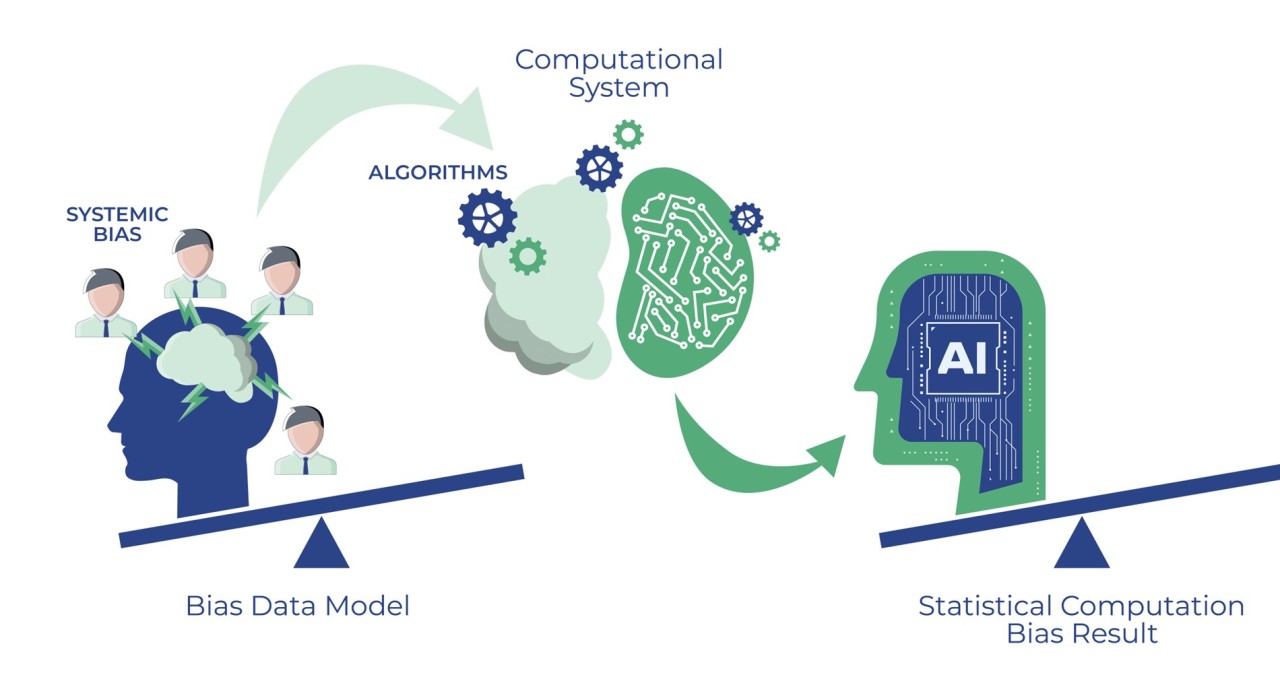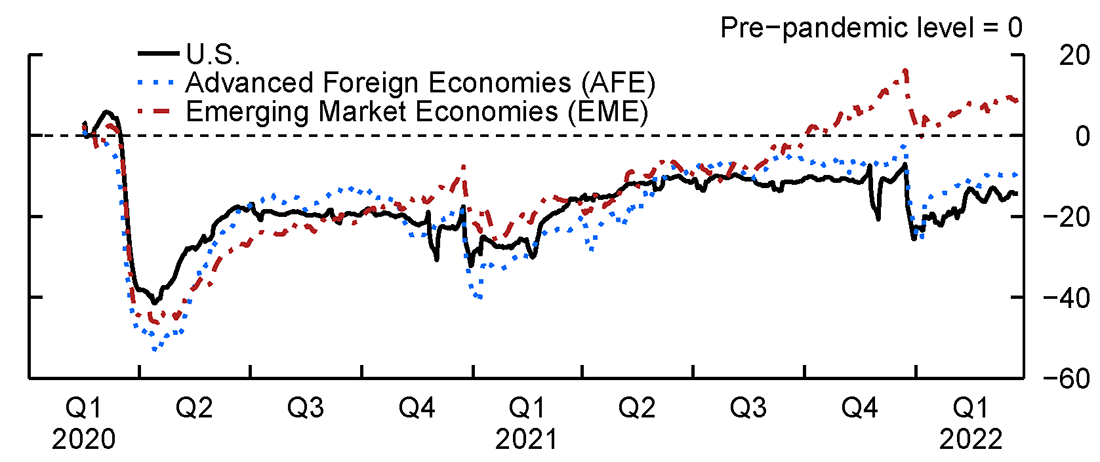OpenAI's ChatGPT: The FTC Investigation And Its Potential Impact

Table of Contents
The FTC Investigation: What We Know So Far
The FTC, tasked with protecting consumer privacy and preventing unfair or deceptive business practices, launched an investigation into OpenAI. While details remain limited, the probe's scope likely encompasses several key areas:
-
Concerns about data privacy violations and the collection/use of personal data: The investigation may examine how ChatGPT handles user data, including its collection, storage, and usage. This includes scrutiny of whether OpenAI complies with regulations like the GDPR and CCPA, and whether users are adequately informed about data practices. Questions surrounding the potential for misuse or unauthorized access to personal information are central to this aspect.
-
Potential issues related to the generation of false or misleading information: ChatGPT's ability to generate human-quality text raises concerns about the potential for creating and spreading misinformation. The FTC might investigate instances where ChatGPT produced inaccurate, deceptive, or harmful content, examining OpenAI's responsibility in mitigating such risks.
-
The potential impact on children's online safety and data protection: Given ChatGPT's accessibility, its impact on children requires careful consideration. The FTC is likely investigating whether OpenAI has implemented sufficient safeguards to protect children's data and prevent exposure to harmful content. This includes examining age verification processes and content filtering mechanisms.
-
Analysis of ChatGPT's compliance with existing data protection regulations (e.g., GDPR, CCPA): OpenAI's adherence to existing data protection laws in various jurisdictions will be under intense scrutiny. The investigation will likely assess whether OpenAI's data handling practices comply with the letter and spirit of these regulations. Non-compliance could lead to significant penalties.
Potential Impacts on OpenAI and the AI Industry
The OpenAI ChatGPT FTC investigation could have far-reaching consequences. OpenAI faces potential substantial financial penalties if found in violation of consumer protection laws. Beyond financial repercussions, the investigation could trigger significant regulatory changes across the AI industry:
-
Increased scrutiny of AI models' data handling practices: The investigation sets a precedent for increased oversight of how AI companies collect, use, and protect user data. This could lead to more stringent data privacy regulations and stricter enforcement.
-
Potential for stricter regulations around the use of AI in generating content: The FTC's focus on misinformation could lead to regulations governing the use of AI for content creation, particularly in areas like journalism, marketing, and education. This might involve requirements for disclosure of AI-generated content or stricter liability standards for inaccuracies.
-
Impact on AI development timelines and funding: The uncertainty surrounding the investigation could impact the funding and development timelines of AI projects, especially those involving large language models. Increased regulatory burdens could also increase the cost of development.
The ripple effect could extend to other AI companies developing similar technologies, fostering a climate of greater caution and heightened focus on responsible AI development.
Implications for Data Privacy and Consumer Protection
The core issue at stake in the OpenAI's ChatGPT FTC investigation is responsible AI development and deployment. Ethical considerations must be central to the design and implementation of AI systems. The investigation could lead to crucial improvements in data privacy protections:
-
Greater transparency in data collection and usage practices: Increased transparency could empower users to make informed decisions about sharing their data with AI services. Clear and concise privacy policies are crucial.
-
Enhanced user control over their data: Users should have greater control over their data, including the ability to access, correct, and delete their information. "Right to be forgotten" principles should be respected.
-
Increased accountability for AI companies regarding data security: Stronger accountability mechanisms are necessary to ensure AI companies prioritize data security and take proactive measures to prevent breaches and misuse of personal information.
This enhanced accountability will significantly influence consumer trust in AI technologies. Building trust requires demonstrating a commitment to ethical practices and user protection.
The Future of ChatGPT and Responsible AI Development
OpenAI may respond to the investigation by implementing significant changes, such as:
-
Improved data security measures: Strengthening data encryption, access controls, and security protocols is crucial. Regular security audits should be conducted.
-
Enhanced content moderation: Developing and deploying more robust content moderation systems to identify and mitigate the generation of false or misleading information is vital. This might include human-in-the-loop verification processes.
Moving forward, ethical considerations must be paramount in the development of large language models. This includes:
-
Bias mitigation strategies: Addressing biases embedded in training data is crucial to prevent AI systems from perpetuating harmful stereotypes or discrimination.
-
Ensuring factual accuracy in AI-generated content: Developing mechanisms to verify the accuracy of AI-generated information is essential to combating the spread of misinformation.
-
The importance of human oversight in AI systems: Maintaining human oversight in the development and deployment of AI systems is crucial to ensure responsible use and mitigate potential risks.
Continuous monitoring and regulation are necessary in this rapidly evolving landscape to ensure that AI benefits society while mitigating its risks.
OpenAI's ChatGPT and the Path Forward
The OpenAI ChatGPT FTC investigation highlights the critical need for responsible AI development and robust regulatory frameworks. The potential ramifications for OpenAI, the AI industry, and data privacy are significant. The outcome will shape the future of AI, emphasizing the urgency for ethical guidelines and transparent data handling practices. Follow the OpenAI's ChatGPT FTC investigation closely, stay updated on the OpenAI ChatGPT legal battle, and learn more about responsible AI development concerning OpenAI's ChatGPT to contribute to a future where AI is used ethically and safely.

Featured Posts
-
 Tariff Uncertainty Forces U S Businesses To Cut Costs
Apr 29, 2025
Tariff Uncertainty Forces U S Businesses To Cut Costs
Apr 29, 2025 -
 Are Minnesotas Film Tax Credits Competitive Enough
Apr 29, 2025
Are Minnesotas Film Tax Credits Competitive Enough
Apr 29, 2025 -
 Top India Fund Manager Dsp Sounds Warning Boosts Cash Holdings
Apr 29, 2025
Top India Fund Manager Dsp Sounds Warning Boosts Cash Holdings
Apr 29, 2025 -
 Unveiling The Mechanisms How Ai Functions And Why Its Not Really Thinking
Apr 29, 2025
Unveiling The Mechanisms How Ai Functions And Why Its Not Really Thinking
Apr 29, 2025 -
 Over The Counter Birth Control A New Era Of Reproductive Healthcare
Apr 29, 2025
Over The Counter Birth Control A New Era Of Reproductive Healthcare
Apr 29, 2025
Latest Posts
-
 Exploring The Countrys Fastest Growing Business Regions
Apr 29, 2025
Exploring The Countrys Fastest Growing Business Regions
Apr 29, 2025 -
 Ecb Report Post Pandemic Fiscal Policies Contribute To Inflation
Apr 29, 2025
Ecb Report Post Pandemic Fiscal Policies Contribute To Inflation
Apr 29, 2025 -
 Inflation Persists Ecb Attributes High Prices To Pandemic Relief Spending
Apr 29, 2025
Inflation Persists Ecb Attributes High Prices To Pandemic Relief Spending
Apr 29, 2025 -
 A Data Driven Look At The Countrys Newest Business Hotspots
Apr 29, 2025
A Data Driven Look At The Countrys Newest Business Hotspots
Apr 29, 2025 -
 Post April 8th Treasury Market Analysis Findings And Forecasts
Apr 29, 2025
Post April 8th Treasury Market Analysis Findings And Forecasts
Apr 29, 2025
